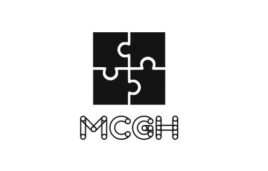
by Sylvester Addo | Jan 20, 2018 | Microsoft Africa, Microsoft Nigeria
Microsoft Nigeria and National Information Technology Development Agency sign memorandum of understanding to strengthen ICT adoption and innovation in Nigeria.
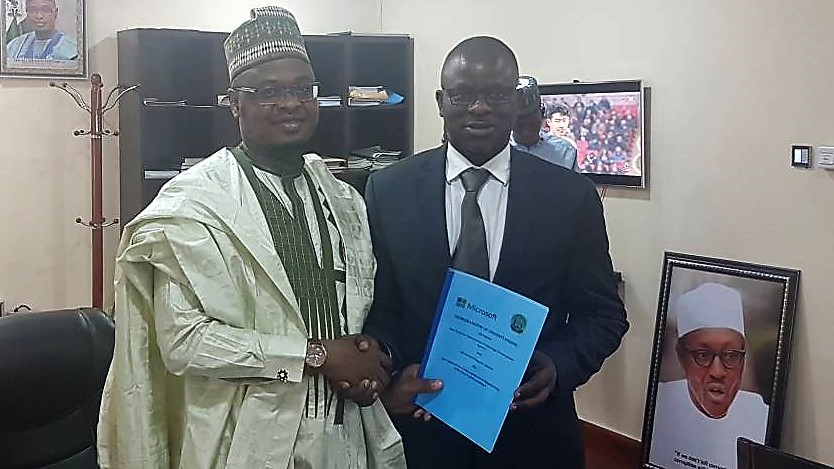
The National Information Technology Development Agency(NITDA) Nigeria and Microsoft Nigeria have signed a memorandum of understanding. The MOU seeks to see both parties working together to improve and strengthen ICT innovation and adoption in Nigeria. The collaboration will center on cloud policies, data protection, privacy laws and data classification frameworks.
Akin Banuso, Microsoft Nigeria’s General Manager, shares on the delight to partner to technologically and digitally transform sectors.
“We are excited to collaborate with NITDA. Microsoft is committed to providing technology you can trust. We have been actively involved in discussions with governments around the world to digitally transform systems. Also frequently asked by other governments to identify best practices for moving to the cloud. We are honored to be able to work with the Nigerian government on this framework.
This collaboration aims to foster detailed discussions of recent regulatory and policy development, including global best practices. To create cloud regulatory frameworks appropriate for driving innovation and improving how the public sector operates and delivers citizen services”
NITDA believes technology will be at the center of driving some of its governments priorities. Which include Job creation, anti-corruption drive, security, youth and skills training and economic growth. They therefore believe this collaboration will develop policies which drive growth and encourage investments.
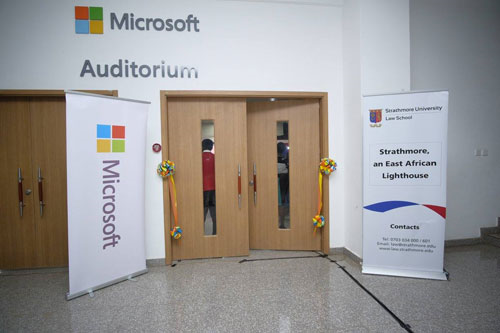
by Sylvester Addo | Oct 4, 2017 | General, Microsoft, Microsoft Africa
Microsoft Policy Innovation Center opens in Africa. Microsoft partnered with Strathmore University, Kenya, to digitally transform their law school and also create a platform to transform and advance policy in the sub region.
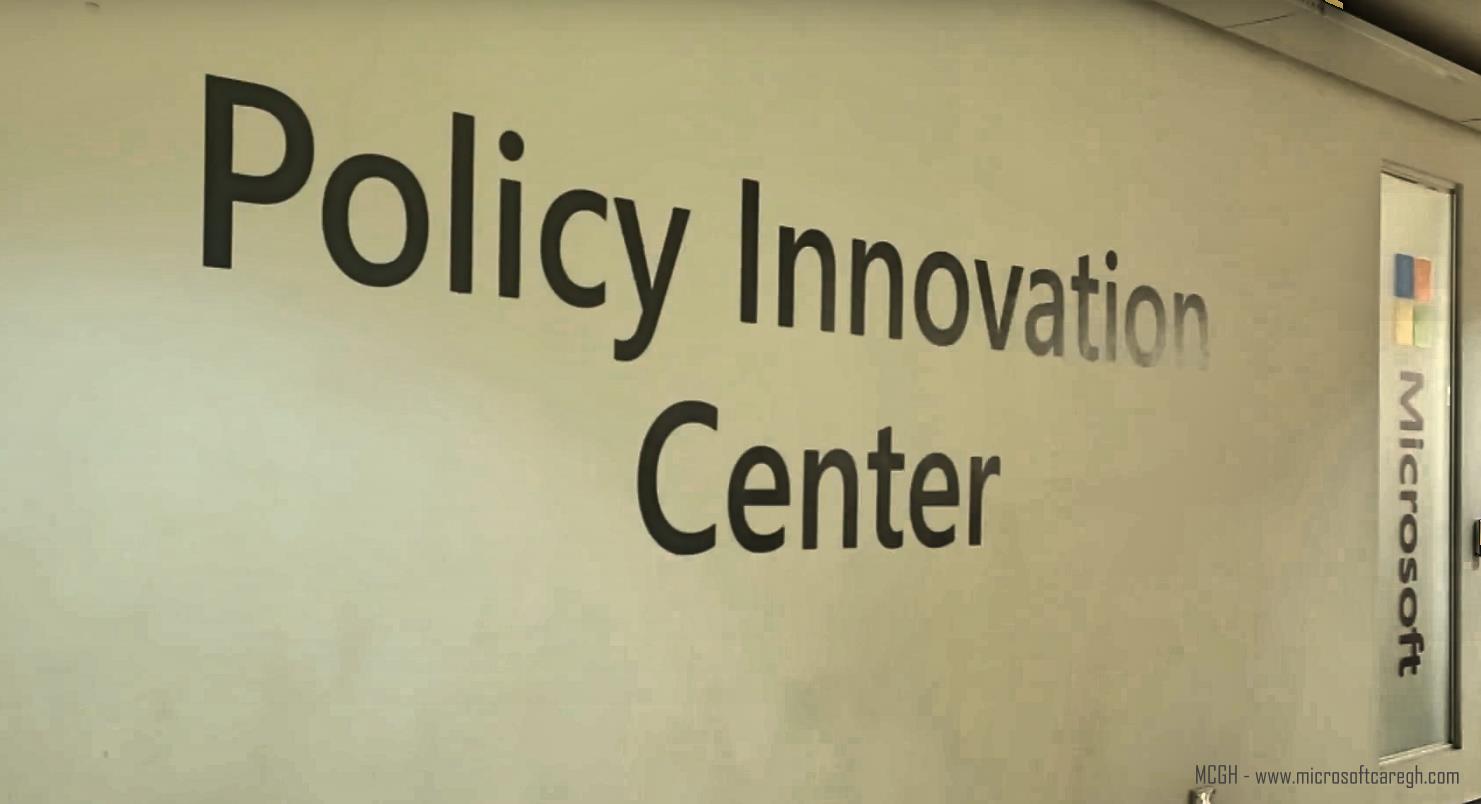
The partnership includes a Microsoft auditorium and Microsoft Policy Innovation center. The Microsoft auditorium will be available to university students including LLM students and houses about 180 people. The policy innovation center though housed by the Law school of Strathmore, will cater for the continent.
The policy innovation center will be used for multiple purposes. Setup with digital and technological systems it can be used as a moot court. Where students can work in an environment that gives them an e-justice modern day court. With audiovisual capabilities, they can conduct moot courts with judges, magistrates and different jurisdictions through available software. It will also be used to bring students, entrepreneurs, public and private sectors to discuss some of the bigger policy concerns in the sub region. Thus by hosting various topics about the justice systems and how to transform them into e-justice systems. That’ll address the sustainable development goals. With an e-justice system you’ll have faster access to justice, quicker delivery of justice, consistency in sentencing and bring down cost of justice. Other key policy areas will include healthcare, agriculture, education, etc.
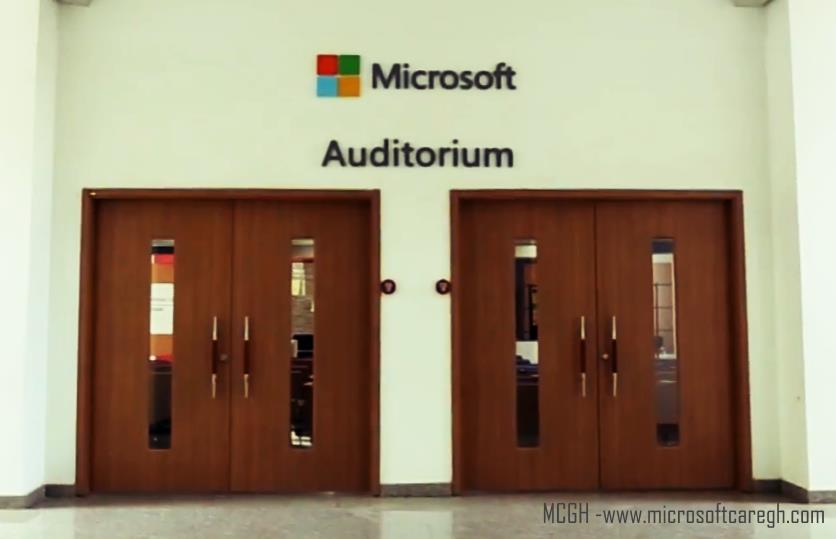
The Microsoft Policy Innovation Center will seek to bring the experts and policy makers together in all relevant industries to share best practices.
“With the Fourth Industrial Revolution upon us new advancements in technology are changing the way we live our lives and how we interact. The benefits are endless. Having the potential to transform businesses, countries, make way for innovations for consumers and create economic opportunities. Challenges and issues that emerge can be effectively addressed by providing a space through the Policy Innovation Centre, that enables collaboration and discussion.
The Policy Innovation Centre will provide a forum to foster dialogue, discussion around policy issues that affect the biggest development challenges we face in the world today, as posed by the United Nations Sustainable Development Goals and the Digital Transformation of industries and countries” – Christopher Akiwumi, Director for Government and Regulatory Affairs MEA
Microsoft in this partnership worked on the design for the auditorium facility, aimed at providing an immersive experience to students, participants and visitors. Microsoft will also provide software solutions and training for the implementation of the project. The Microsoft Policy and Innovation Centre will be equipped with Microsoft Office 365 to provide users with productivity tools that’ll enhance their experience.
With conversations on data protection regulations etc growing how does this initiative bear with you? Share with us.
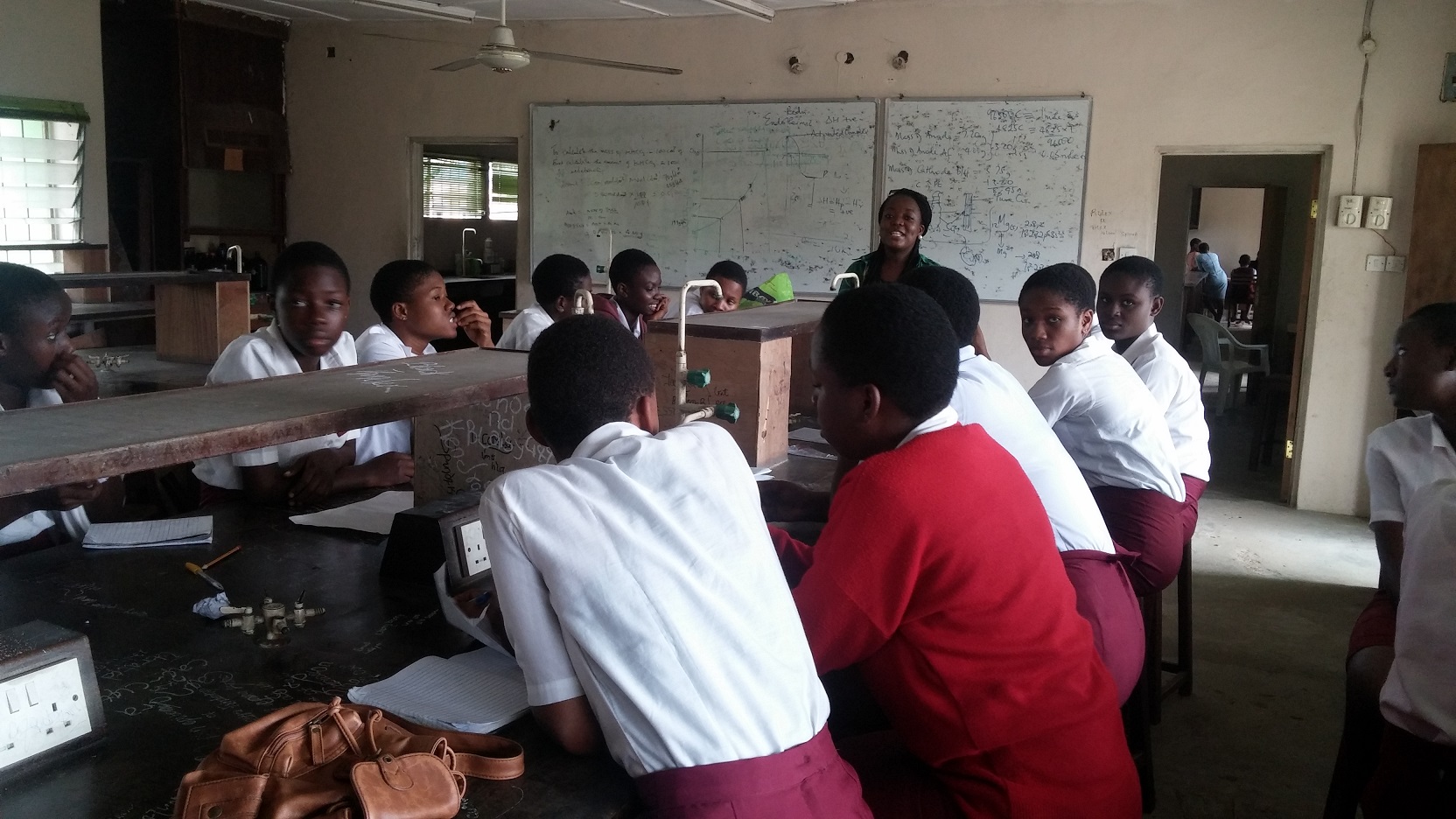
by Sylvester Addo | Aug 16, 2017 | General, Microsoft Africa, Microsoft Nigeria
Digital Education can empower the next generation, Chinenye Ezeakor Microsoft Nigeria Education Programs Assistant shares her thoughts on how.

Chinenye talks about how digital literacy can be a catalyst for the curious youth in this generation and the next. She says the truth of the matter is we live in a digital world and companies of all sizes have a growing need for technology experts. There’s a huge need to get more African youths, including girls, into STEM subjects, particularly technology and computing.
When the education system provides students with the skills they need to thrive, they are more likely to stay and help their country prosper, rather than migrating for better educational or economic opportunities.
As Education Programs Assistant for Microsoft Nigeria, Chinenye Ezeakor and the Education Programs team push for greater digital literacy in Nigeria’s schools through the Microsoft Imagine Academy initiative. She says this kind of support is particularly vital in developing countries. When the education system provides students with the skills they need to thrive, they are more likely to stay and help their country prosper, rather than migrating for better educational or economic opportunities.
Digital Education must be practical
An electrical and electronic engineering graduate from University of Port Harcourt, Chinenye says to fight the trend, you’ve got to start early to foster interests in STEM. Children love to get hands-on, whether they are building sandcastles or playing with Lego. So it’s essential that we translate STEM subjects into practical, hands-on experiences. Due to the type of educational system, we don’t really get to experiment with science. When you can’t see the practical application of something in real-life, you’re not going to see the relevance or the possibilities it might hold for you.
It is essential that we translate STEM subjects into practical experiences.
When you can’t see the practical application of something in real-life, you’re not going to see the possibilities it holds.
This takes on an added level of urgency when you consider how important digital technologies are becoming to Africa’s prosperity and growth. A few years ago, people in Nigeria were unsure about using e-commerce; now it’s a huge component of our economy. This is partly due to the rapid pace at which mobile technology is evolving in Africa, but it also comes down to digital literacy.
Read more on Chinenye Ezeakor’s take on Digital Education and how it can cause economic growths. What’s you take on digital literacy and how it can impact our lives. Do join the conversation and share your thoughts in the comments.

